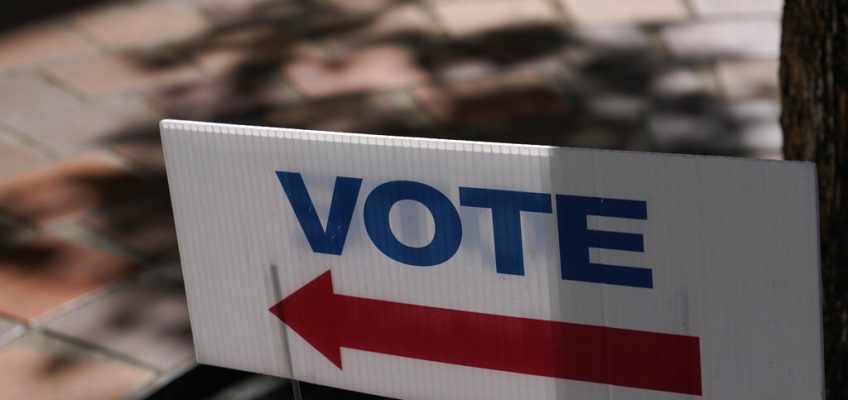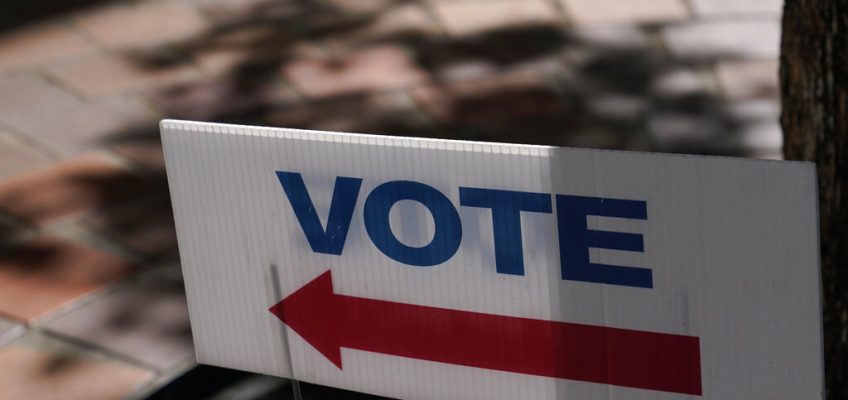Four candidates are running for there seats on the Mounds View school board in November’s election.
The candidates are Shauna Bock, Shea Bruce, Tascha Just and Mark Sacay.
General information about the Nov. 4, 2025, election is online at twincities.com/news/politics/elections including information on candidates for races in Ramsey, Dakota and Washington counties.
To find out what’s on your ballot, where to vote and other election information, visit the Minnesota Secretary of State’s elections page at sos.state.mn.us/elections-voting.
Mounds View school board (elect three)
Shauna Bock
Shauna Bock. (Courtesy of the candidate)
Age: 46
What qualifies you to hold this position?
I hold a Bachelor’s degree in Social Studies Education and a Master’s degree in Special Education, along with licenses as both a Principal and a Director of Special Education. Over the past 20 plus years, I’ve worked across nearly every level of the education system—as a classroom teacher, building administrator, and district-level leader. This broad experience has given me a deep understanding of how decisions at every level impact students, staff, and families.
What would your top priorities be if elected?
Security, Safety, and Technology Gaps A 2024 internal technology audit identified urgent needs related to school safety, cybersecurity, and classroom technology. Critical updates are needed for security cameras, visitor management systems, and building access controls, as well as upgrades to the technology students and staff rely on every day. These improvements aren’t just about equipment—they’re about peace of mind. Families deserve to know that when their children are at school, they are safe, supported, and learning in an environment equipped for today’s world. Investing in security and technology is an investment in both safety and student success.
What do you think is the primary role of government?
From a school board perspective, the primary role of government is to serve the public good by ensuring that essential systems—like education—are equitable, transparent, and accountable. Government exists to provide structure, stability, and opportunities that individuals and communities couldn’t create on their own. In public education, that means making sure every student has access to a safe, high-quality learning environment, regardless of background or zip code.
How do you work to understand, and then learn from, opinions that differ from your own and people who disagree with you?
When someone disagrees with me, I try to listen first—to really understand their perspective rather than preparing my response. I’ve found that listening builds trust, and it often helps uncover common ground. I believe diverse opinions make us stronger, and I’m always willing to re-evaluate my thinking when new information or experiences challenge my assumptions.
Website or contact information: shaunabock.com/
Shea Bruce
Shea Bruce. (Courtesy of the candidate)
Age: 32
What qualifies you to hold this position?
I have ten years of teaching experience and 1 year of health care experience at an autism clinic. I have 2 teaching degrees (K-6 elementary education and K-12 reading), and a Master of Arts in Educational Studies
What would your top priorities be if elected?
I would like to work to increase equity and inclusion in the Mounds View school district
What do you think is the primary role of government?
I believe the primary role of the government is to be the voice of the people and be able to help those who cannot help themselves.
How do you work to understand, and then learn from, opinions that differ from your own and people who disagree with you?
I am a very good listener; I seek to understand and learn, not to change minds or sway people to “my side.” I truly believe everyone is trying their best and wants to learn, grow, and do well.
Website or contact information: None provided.
Tascha Just
Tascha Just. (Courtesy of the candidate)
Age: 47
What qualifies you to hold this position?
I bring a unique combination of professional expertise and community commitment. As a school psychologist for over 20 years, I’ve supported students across Minnesota in academics, mental health, and crisis response. Locally, I’m a proud Mounds View parent, board secretary for the Native American Parent Committee, and a volunteer with district programs. I also serve statewide as President-Elect of the Minnesota School Psychologists Association and on the Children’s Justice Act Task Force. These roles give me the skills to bridge local voices with statewide advocacy. I know how schools work, what students need to thrive, and how to lead with transparency and care so every child feels safe, supported, and prepared for the future.
What would your top priorities be if elected?
My top priorities are student safety, academic excellence, and community trust. Safety comes first – from secure entrances to protecting against the 60,000 cyberattacks our district blocks each month. Academic excellence means tackling middle school math while ensuring neurodivergent, multilingual, and advanced learners all thrive. Finally, trust is built when families, staff, and students are heard – just as we saw with the collaborative cell phone policy and new recognition of holidays.
What do you think is the primary role of government?
At its best, the government exists to serve people – not the other way around. Its primary role is to create conditions where families, communities, and individuals can thrive safely and with dignity. That means investing in education, protecting public safety, and ensuring transparency and accountability in how resources are used. I believe the government should function like a good school district: listening to its people, responding to real needs, and using data and compassion to guide decisions. When the government does its job well, it builds trust – not through control or ideology, but through collaboration, fairness, and the courage to do what’s right, even when it’s not easy. Ultimately, the role of government is to safeguard opportunity – so that every child, every family, and every community has a fair chance to succeed.
How do you work to understand, and then learn from, opinions that differ from your own and people who disagree with you?
My background as a school psychologist has taught me that every disagreement holds a story, and every story holds values worth hearing. When people disagree, I look for the “why” behind their view and the shared goals we might both care about – safety, opportunity, belonging. I’ve found that respect and curiosity open more doors than argument ever will. In my work, I’ve facilitated tough conversations between families, educators, and administrators. The goal isn’t to win; it’s to build trust strong enough to solve problems together. Even when we don’t agree, I always learn something that helps me lead with more clarity, compassion, and humility.
Website or contact information: justforschoolboard.com. Email: TaschaJust1@gmail.com
Mark Sacay
Age: 58
What qualifies you to hold this position?
Dedicated, mission-driven professional transitioning from a 30-year corporate insurance career to the non-profit sector to leverage extensive leadership, project management, and relationship-building skills for community impact. Proven commitment to social justice and civic engagement through hands-on roles as an ESL teacher for the Somali community, a poll worker, and a campaign volunteer for State Representative elections. Deeply engaged community advocate with experience across various non-profits, including Amersand Families, Dorothy Day, and Mission Continues, currently supporting organizations like Indivisible Twin Cities, Unidos MN (Legal Observer-trained), and local church-based social justice initiatives – Isaiah, and Welcome the Stranger. I know have an opportunity to give back to my community, and what better way to do this by running for School Board Member – Mounds View School District 621.
What would your top priorities be if elected?
1. Fiscal Responsibility and Resource Allocation We must be diligent stewards of taxpayer dollars. I’m committed to continuing to ensure our financial decisions are transparent, data-driven, and focused on maximizing the impact of every dollar spent. That means investing wisely in classrooms, staff, and programs that directly benefit student learning and development. 2. Continuous Improvement of Academic Excellence Our schools should be centers of opportunity, where all students—regardless of background—have the tools and support they need to succeed, and this includes high academic standards, robust instructional practices. I believe continuous improvement is essential, and we must stay responsive to the evolving needs of our students and families. 3. Prioritizing Mental Health in our schools The district aims to improve student well-being by expanding readily accessible resources, including on-campus counselors, therapists, and dedicated safe spaces where students can seek support. Also, recognizing the immense pressure on our teachers and staff, I will advocate for professional development that includes training on identifying mental health challenges, as well as access to wellness programs and support services for educators. 4. Strengthening Community Engagement and Communication A strong school district is built on trust, transparency, and collaboration. I will work to improve communication among the board, families, staff, and the broader community. Our students thrive when schools and communities work together, and I’m dedicated to fostering that partnership every step of the way. Together, we can ensure Mounds View Public Schools remain a place where all students feel seen, supported, and set up for success.
What do you think is the primary role of government?
My view is that the government is there to ensure the entire community thrives, not just a select few. That mission goes beyond just security and justice. It requires them to actively promote the general welfare by providing a safety net (healthcare, etc.), making sure the economy is regulated for fairness, and investing in our people through education and opportunities.
How do you work to understand, and then learn from, opinions that differ from your own and people who disagree with you?
My approach begins with my strongest skill: making genuine one-on-one connections. I actively seek out individuals whose perspectives diverge from my own to engage in candid, direct discussion. My goal is not to debate, but to listen empathetically and identify shared values. By focusing on areas of agreement first, I establish a foundation of mutual respect that allows us to explore difficult issues with a spirit of compromise and collaboration, always striving to build stronger community relationships.
Website or contact information: marksacayforschools.com/



